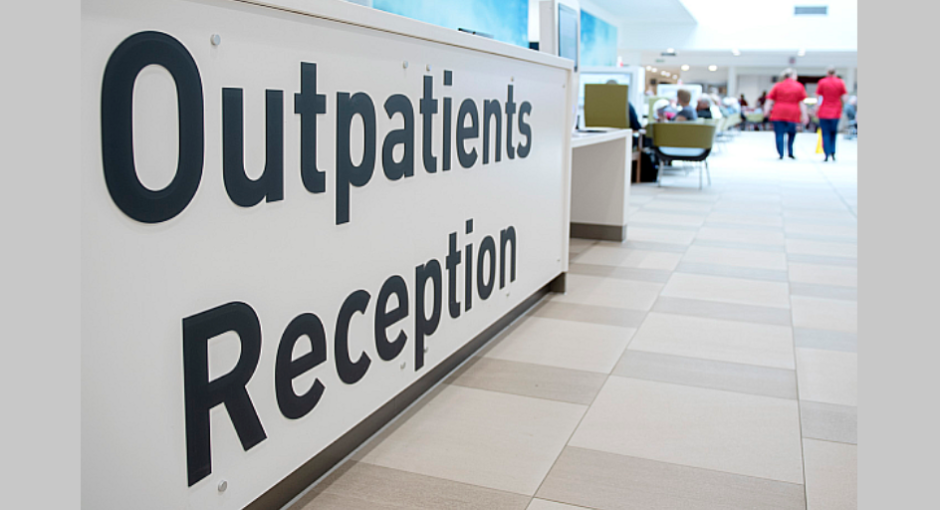The U.S. Centers for Medicare & Medicaid Services is proposing a change to the Medicare disproportionate share hospital (DSH) payment methodology that could cause some hospitals in seven states to be disqualified from the 340B program.
Tucked into the more than 700-page Inpatient Prospective Payment Systems proposed rule for fiscal year 2022 published in the Federal Register last month, CMS proposes revising the formula for how hospitals count Medicaid patient days toward their Medicare DSH eligibility, which can impact their participation in 340B. The rule would apply in states that have received Section 1115 Medicaid waivers for demonstration projects, specifically those that have created a pool of funds for hospitals to defray the costs of uncompensated patient care.
According to the State Health Access Data Assistance Center, seven states currently use Section 1115 demonstration waivers to maintain uncompensated care pools: California, Florida, Kansas, Massachusetts, New Mexico, Tennessee, and Texas. Two others—Arizona and Hawaii—also did so until recently, but their Section 1115 waivers expired.
CMS proposes changing the inputs into the numerator of the Medicaid fraction, the process by which patient days are counted and applied toward DSH. “We do not believe that the uninsured patients whose costs are partially offset by uncompensated care pools can be ‘regarded’ as being eligible for Medicaid,” CMS said in its proposal.
The Medicare DSH payment adjustment percentage factors in days from numerous programs that serve low-income patients, including Medicare, Medicaid, Medicaid managed care, and Supplemental Security Income (SSI). To qualify for the 340B program, disproportionate share (DSH) hospitals, children’s hospitals, and free-standing cancer hospitals must have a Medicare DSH adjustment percentage greater than 11.75%, which translates into an indigent population of close to 30 percent. Sole community hospitals and rural referral centers must have a DSH adjustment percentage equal to or greater than 8%.
“The bottom line is that the more Medicaid days that a hospital can include in the Medicaid fraction of the DSH calculation, the higher its DSH payment percentage will be and, correspondingly, the more likely the hospital will be to qualify for 340B,” said Barbara Straub Williams, a principal with the law firm of Powers, Pyles Sutter & Verville in Washington, D.C.
Under CMS’s IPPS proposed rule, “patient days of individuals receiving benefits under a section 1115 waiver program” allowing states to defray the costs of uncompensated care pools “would be counted in the numerator of the Medicaid fraction only if the patient directly receives inpatient hospital insurance coverage on that day under a waiver authorized under section 1115.”
The change “could result in more hospitals with a DSH (adjusted) percentage very close to or below the statutory requirement,” said William Wood, senior director of Visante, a pharmacy and 340B consulting firm.
Although it’s unknown how many hospitals might be disqualified from 340B as a result of such a change, “I’m sure there are tons of (hospitals) out there that continue to get by the skin of their teeth,” said Keith Chop, managing partner of the Alinea Group, a consulting firm focused on 340B providers.
If CMS finalizes its proposal, and DSH hospitals lose their eligibility for 340B as a result, some might be able to convert to sole community hospital status, which has the lower 8% DSH adjustment percentage threshold for 340B eligibility. However, that “has a pretty substantial negative financial impact,” Chop observed, because they can no longer secure discounts for orphan drugs. Moreover, while free-standing children’s hospitals and free-standing cancer hospitals don’t receive DSH payments, their payer mix still requires they meet the higher 11.75% threshold under the Medicaid fraction formula to qualify for 340B.
CMS cited a number of legal decisions in federal court that were favorable to hospitals in boosting their Medicaid days for non-Medicaid patients who have low incomes as a rationale for the proposed change.
“In other words, hospitals won on the issue under the current regulations and CMS is proposing to change the regulation to essentially reverse the court decisions for future periods,” Williams said.
Proposed changes to the IPPS typically draw hundreds of comments. Since the public comment period does not close until June 28 and most entities submit their opinions just before the deadline, only 60 comments had been submitted as of Wednesday. Virtually all have been on the scores of other proposed changes to the IPPS. Hospital groups representing 340B providers and hospitals that could be impacted by the change will likely weigh in opposing the DSH change. CMS is expected to issue a final rule later this year.
Meanwhile, “hospitals should thoroughly review their State Medicaid Plan and understand how Section 1115 waivers are defined in that plan,” said Kristin Fox-Smith, a Visante senior vice president for its hospital and health system services division.


